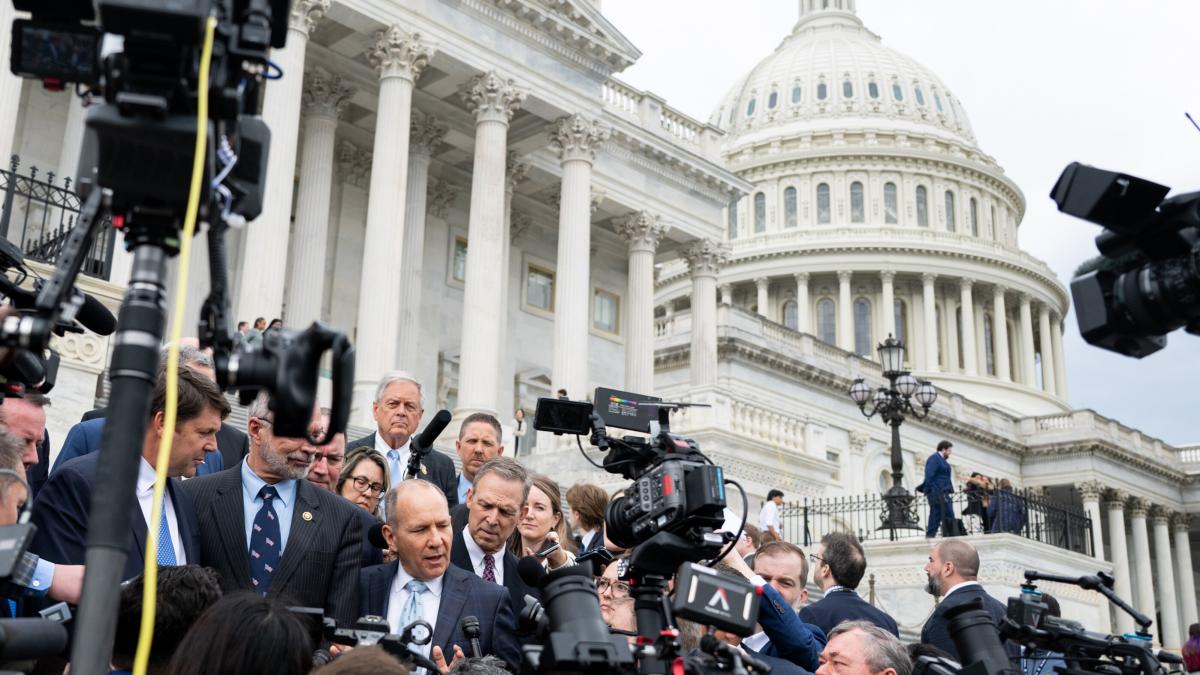The real math problem: America's debt crisis threatens us all [column]

FIRST PUBLISHED IN LNP|LANCASTERONLINE ON APRIL, 20, 2025
In an April 13 LNP | LancasterOnline column, Lancaster County Community Foundation President and CEO Sam Bressi raised a heartfelt concern about potential federal spending cuts and the role of philanthropy in our community. I appreciate his concern and share his passion for building a stronger Lancaster County.
But we must also be honest about a deeper challenge — one that threatens not just the programs he champions, but the very fabric of our economy.
Bressi says America has a math problem. He’s right, but it’s not the one he thinks it is.
The issue is whether our nation can survive a fiscal trajectory in which the federal government spends nearly $2 trillion more than it takes in — year after year. In fiscal year 2025, the federal government is projected to spend nearly $7 trillion but is expected to bring in just under $5 trillion — adding another nearly $2 trillion to our already staggering $36 trillion national debt. That red ink is growing by more than $50,000 every second, according to U.S. Rep. David Schweikert, chairman of the bicameral Joint Economic Committee.
This isn’t an abstract issue. The interest on our debt is projected to soon exceed $1 trillion annually, crowding out the very investments that we care about — from educating our children, to supporting our veterans, to protecting public safety. Ray Dalio, founder of the hedge fund Bridgewater Associates, recently warned the United States may be entering a “debt death spiral” — borrowing just to pay interest, driving up costs and shaking global confidence. We’re already seeing early signs: Bond yields are rising and foreign demand for U.S. debt is weakening.
If confidence falters further, we risk a sovereign debt crisis — in which the government would struggle to finance its obligations at all. That would be catastrophic for families, nonprofits and businesses in Lancaster County and across the country.
The Community Foundation’s Bressi is right that charitable giving does not equal federal spending — but that’s not the right comparison to begin with. The real question is whether government should be doing all the things it currently does — and whether Washington’s distant bureaucracy is the best way to support vibrant communities.
If federal spending were a determinant of success, we would already be the healthiest nation on Earth. Sadly, we are not.
Yet with all the challenges we face, there is hope — and it lives in our communities and civil society. As Alexis de Tocqueville observed nearly 200 years ago: “At the head of some new undertaking you see the government in France, or a man of rank in England; in the United States you will be sure to find an association.”
That French political theorist noted that we rely not just on government to solve our problems, but that Americans band together to seek solutions. That’s still true today in Lancaster County, where so many people and organizations work together to assist our fellow county residents.
Many local nonprofits actively choose not to seek federal funds — not because they oppose government, but because they know they can serve more effectively without the red tape that accompanies federal aid.
Consider Water Street Mission, which has faithfully served our community for more than a century — without relying on federal funding. That independence allows Water Street to act quickly, stay true to its mission, and serve those in need without compromise. Water Street Mission does life-changing work, as so many organizations do across the community.
That is not to say that government has no role in supporting our communities. But continuing the status quo in Washington, D.C., risks everything — including programs we want to preserve. Calling for spending reform is not callous. It is the only responsible path forward to make programs sustainable.
If we care about helping people in the long term, we must stop ignoring the warning signs flashing in red.
No one is proposing the elimination of essential supports for individuals or our community. However, if we want those supports to last — if we want to protect families, nonprofits and local businesses — we must rein in unsustainable federal spending and put our nation on a strong fiscal trajectory.
The stakes are clear — and so is the choice. If we want to preserve what matters most, we must solve the real math problem before it’s too late.
U.S. Rep. Lloyd Smucker represents Pennsylvania’s 11th Congressional District, which includes Lancaster County and southern York County. He serves as vice chair of the U.S. House Budget Committee.